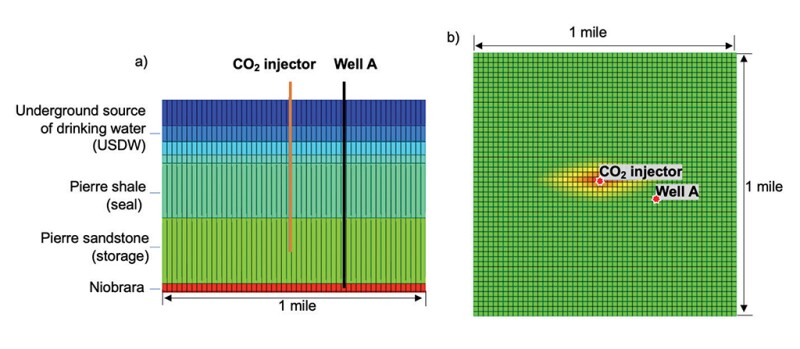In the complete paper, poorly understood leakage potential is researched to quantify the carbon-leakage rate along one legacy well when carbon is injected into a storage formation in the Denver-Julesburg (DJ) Basin. The authors’ results indicate that, for secure carbon sequestration, a good geological storage site should be kept away from wells that have a surface casing depth of 476 ft or shallower and that were drilled before 1994. The effective well permeability highly affects leakage rate, suggesting the importance of estimating the most-representative value or range for this parameter.
Introduction
To estimate risks associated with geological carbon storage, the National Risk Assessment Partnership (NRAP) Open-Integrated Assessment Model (IAM) tool used in this study presents a modeling approach that can couple efficient reservoir and wellbore components with low computational cost. Two wellbore model components, the open-wellbore model and the multisegmented-wellbore model, were studied to estimate the leakage rate during and after carbon-injection operations. The effective permeability of the disturbed zone outside the well casing is an important parameter in leakage models.


